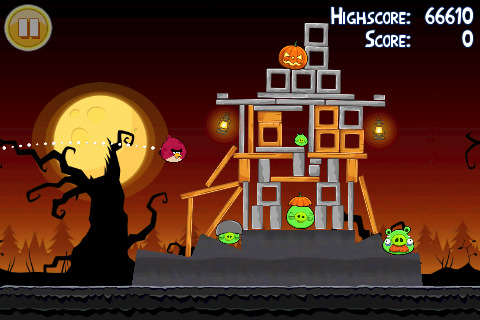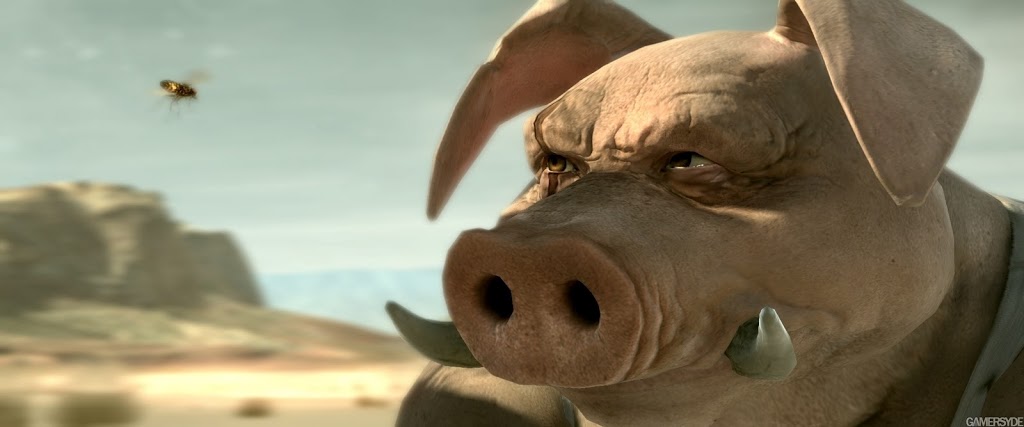Defined as “obtaining a profit or other advantage by timely exploitation,” the concept of cashing in has been around nearly as long as humans have understood commerce. Individuals in the oldest civilizations in the world found various ways to profit from others’ misfortune, and starting in the 1800’s the proliferation of various hoaxes was merely a variation on the theme.
Games are different though, aren’t they? Some games are obvious cash ins, but isn’t calling them "hoaxes" a bit harsh? Not in the least.

It could be argued that P.T. Barnum, whose famous Fiji Mermaid hoax drew millions of patrons to his circuses, was only providing entertainment. And it was obviously entertainment that people wanted, because he made scads of money.
In that regard, what makes the actions of P.T. Barnum different from the actions of a developer like Rovio? Angry Birds Rio was released by an enterprising business team capitalizing on the mad avian lust that fueled the original’s success. Aren’t they merely providing entertainment that people obviously want?

“Timely exploitation” is the only facet of our definition that we haven’t discussed yet, and that’s when the conversation gets gritty. Going back to the P.T. Barnum example it’s difficult to argue that he wasn’t an opportunist or that the Fiji Mermaid wasn’t exploitative. It was revealed to be a fake, and was only displayed because he knew that curiosity alone would attract people.
Rovio could have waited any amount of time to release both the onslaught of merchandise and the follow-up games, but they didn’t. They opted instead to exploit public hunger for the property before the inevitable Angry Birds fatigue sets in, seemingly setting themselves up for a very “Beanie Babies” future.
Let’s assume you’ve been eyeing a game for your iPhone or Android that used to cost a dollar, but now it’s “free.” It’s the same somewhat naive culture that thinks that’s a bargain, but fast-forward four dollars worth of “in-app” purchases later and you’ve paid four times the original value of the game.
The average person playing that game doesn’t actually realize this. They simply don’t, and every company who’s moved to a “free-to-play” model will tell you this. And that… is exploitation.
Mobile games are by far the most egregious offenders, though the same principle has been applied across the board to MMO’s and other PC games. While that particular model has not yet gained traction in the console space, those systems have an equivalent… and it is called “the sequel.”

Take for instance Bioshock 2 (2K Marin), which made no significant leaps in gameplay or narrative and wasn’t even made by the same company that made the original Bioshock (Irrational Games). It’s not a bad game, but it doesn’t need to exist. It was just a cash grab that conveniently struck while the Bio-iron was hot.
After working for eight years (by various accounts) on Dragon Age: Origins, heaps of praise and surprisingly strong sales numbers brought a sequel which was developed in only a year. You can summon all the magic in Kirkwall – you still won’t be able to match in one year what you’d captured in eight.
That’s all the publishing and business side of the coin, though. What about the developers? What about the people tasked with actually making the games? That’s where the story sees its first hint of optimism.
Though there are developers who are just hired guns, some have conversely become increasingly eager to make sequels. They are aware of profit margins and understand the perks to be gained from the games’ successes, but to these developers making a sequel means they get to further iterate on ideas they explored in the first title.
For an example we can return to Bioshock, oddly enough. Irrational Games made the first Bioshock, and are currently working on Bioshock Inifinite. While building on the groundwork laid in the first game, fine tuning the game mechanics, and further iterating on their original ideas they are showing the real development of a title and – frankly – providing further evidence that Bioshock 2 was just a cash grab.
These sequels can go either way; they can be brilliant or pathetic. No one wants to feel cheated with a bad game, because that’s when it crosses the line and start to feel, well… like a hoax.
Especially in the case of a sequel, everyone hopes that it will improve on the original. The anticipation grows exponentially when it takes a long time for said sequel to emerge, for example something like Beyond Good & Evil 2 or a second Mirror’s Edge title.

It’s a landscape that changes daily, with companies constantly trying new ideas and scraping to find the monetization model that will work the best. The mobile scene still seems like an opportunist’s playground, but to most end users it’s still just as simple as spending one dollar instead of sixty on a game.
Sequels, too, will continue to be a mixed bag of tricks. Pong even had sequels. We can’t escape them. We can only hope that we’ll be able to help steer the industry in the right direction by voting with our dollars, one or sixty of them at a time.